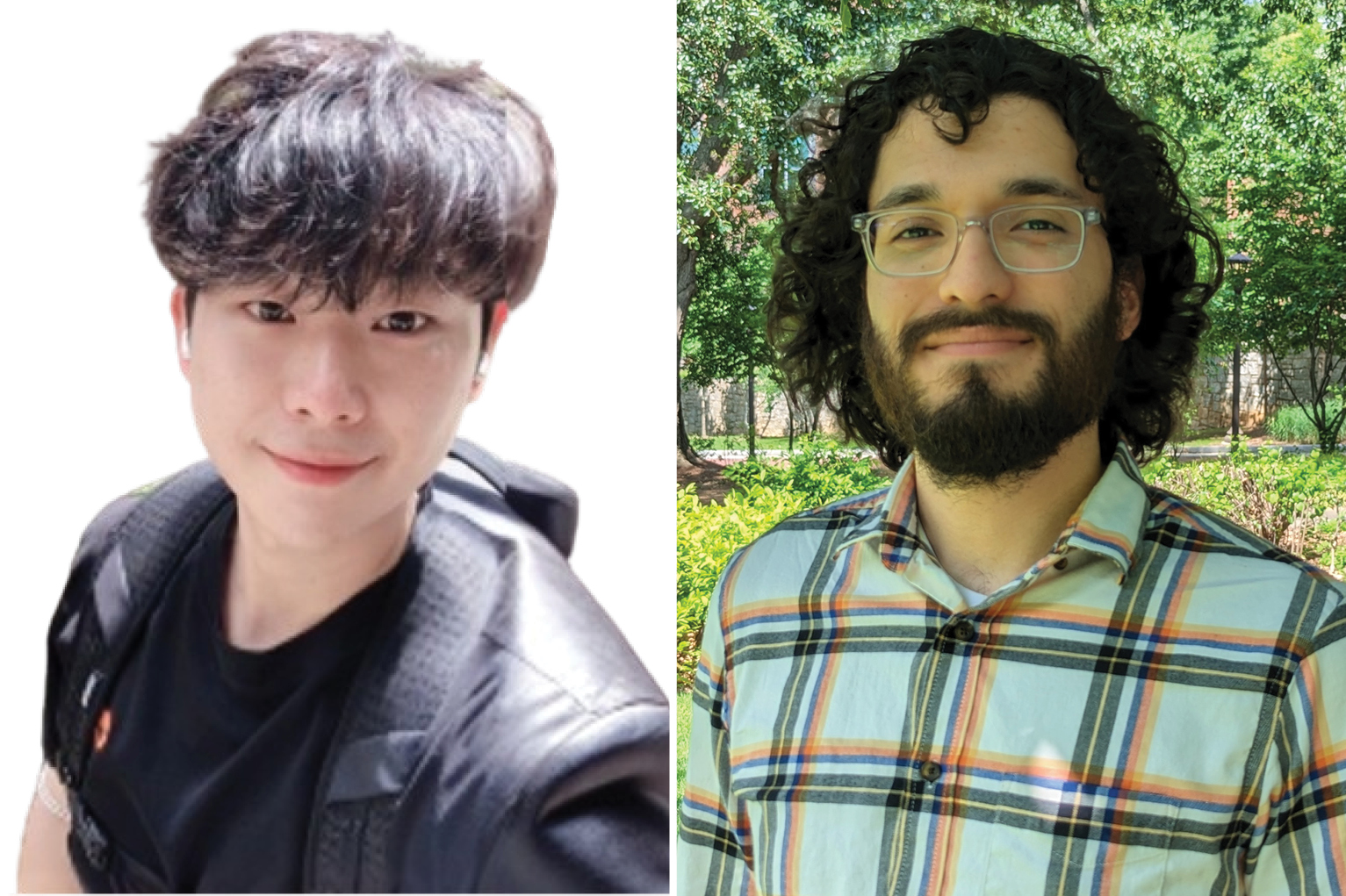
Pictured left to right: Seunghyeb Ban and Ramón Sosa
Two Woodruff School Graduate Students Receive Herbert P. Haley Fellowships
August 14, 2024
By Mikey Fuller
Seunghyeb Ban and Ramón Sosa, two graduate students from the George W. Woodruff School of Mechanical Engineering, have been selected as Herbert P. Haley Fellowship recipients.
Haley scholars receive a one-time merit award of up to $4,000 thanks to the generosity of the late Marion Peacock Haley. Haley’s estate established the creation of merit-based graduate fellowships at Georgia Tech in honor of her late husband, Herbert P. Haley, ME 1933.
Seunghyeb Ban is a mechanical engineering Ph.D. student whose research focuses on developing advanced human-machine interface (HMI) systems using machine learning algorithms and wearable smart healthcare monitoring. His work aims to enhance the remote control of manufacturing systems, construction tools, and surgical robots, as well as to improve biosignal monitoring with stretchable, flexible electronics. He is a member of the Bio-Interfaced Translational Nanoengineering Group and advised by W. Hong Yeo, Harris Saunders, Jr. Professor, Associate Professor, and Woodruff Faculty Fellow.
Ban says receiving the Haley Fellowship is a tremendous honor and provides valuable support that will allow him to further his studies. “I am deeply grateful for this award, which will enable me to advance my research and contribute to the field of mechanical engineering and healthcare technology.”
Sosa completed his undergraduate and master’s degree in the School of Materials Science and Engineering and is now a second-year mechanical engineering Ph.D. student. He is working on the design and characterization of advanced interconnection materials for emerging high-performance computing applications in Assistant Professor Vanessa Smet’s lab.
“I was delighted to hear that I received this award,” says Sosa. “It really felt like a recognition of all the hard work that I’ve done during my tenure here at Tech.”
Originally from Tegucigalpa, Honduras, Sosa grew up in a first-generation immigrant family in Miami, Florida. He says the importance of higher education was instilled in him early and stressed often.
Sosa’s thesis will be focused on the modeling, design, and demonstration of novel package architectures that leverage new high-performance materials to enable next-generation computing systems and extend the viability of Moore’s Law through packaging innovations.
“Packaging is a really exciting field to work in right now, with all the focus on enabling AI and big funding opportunities like the CHIPS Act. There are a lot of really ambitious roadmaps out there for the new technologies that will be needed to realize the promise of advanced computing, and I hope my work will help us get there in a more sustainable way through reducing power consumption and improving computing efficiency,” Sosa says.
